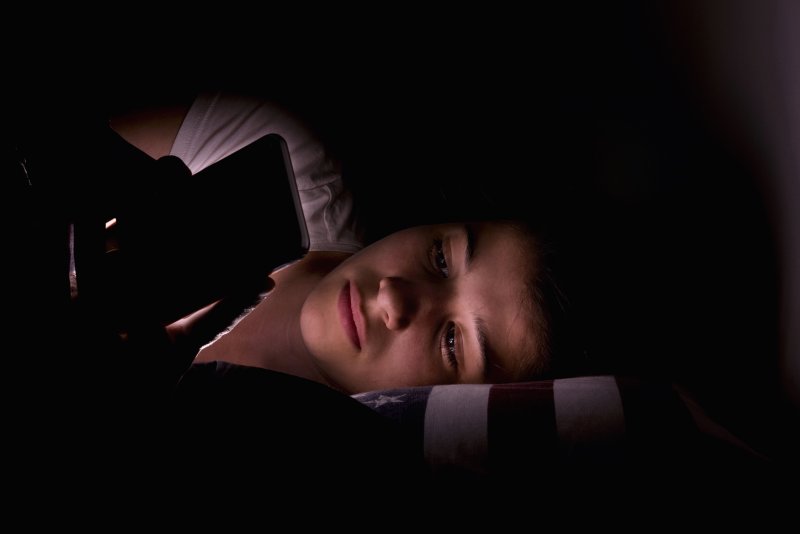
Technology is so greatly integrated with our lives that it’s hard to get away from it – even at the end of the day. You may think that checking your messages on your phone or watching some online videos may be a good way to unwind before bed, but the truth is that these behaviors could be preventing you from getting a good night’s rest. Learn the sleep science behind how that extra screen time could be keeping you up at night.
Bright Lights Suppress Melatonin
Melatonin is the hormone used to control the body’s sleep cycle; it’s produced when there’s not as much light exposure, i.e. when it gets dark at night. The bright lights of electronic screens can delay the release of melatonin, making it more difficult to fall asleep.
This is made worse by the fact that phones, televisions, and other screens emit blue light, which negatively affects melatonin production more than any other kind of light. Some researchers say that this is because blue light is on a shorter wavelength that the body is more sensitive to. For this reason, it’s recommended to avoid using electronics for at least 30 minutes or an hour before bed.
The Noises Can Wake You Up
Does your phone get alerts or calendar reminders in the middle of the night? The sounds associated with certain electronic devices can wake you up early. It may be best to turn off all devices or remove them from the room altogether in order to ensure a restful night.
Electronics Keep You Alert and Stimulated
The normal routine of going to bed – taking a shower, brushing your teeth, putting on sleeping clothes – can help signal to the brain that it should start getting ready for sleep. However, spending time surfing the web or watching television fills your mind with information and thoughts that need to be processed. This stimulation can come from passively looking at something on the screen or through interaction (e.g., playing a video game); either way, the brain is tricked into thinking it needs to stay up.
This can also provide plenty of distractions that can cause you to lose track of time. “One more video” or “one more level” can easily turn into a marathon if you’re not careful, and the longer it goes on, the more stimulation your brain receives. Not only will it be harder to get to sleep, but you’ll also have less time to do so, preventing you from getting the 7 or 8 hours of rest recommended to avoid health problems.
You can improve the quality of your sleep by distancing yourself from electronics as part of your nighttime routine. If you’re unsure about what changes can be made, speak with your sleep dentist; they might have a few suggestions on areas you can improve.
About the Practice
At Kirlough Family Dentistry, Drs. Jon Kirlough and Joseph Ferrini are proud to be serving their community in Cleveland, Ohio. Dr. Ferrini has been a practicing dentist for over 40 years, and Dr. Kirlough has served as a dental officer in the Navy. In addition to traditional dental problems, they can also treat patients suffering from a sleeping disorder known as sleep apnea. To schedule an appointment, visit their website or call (440) 234-2445.


